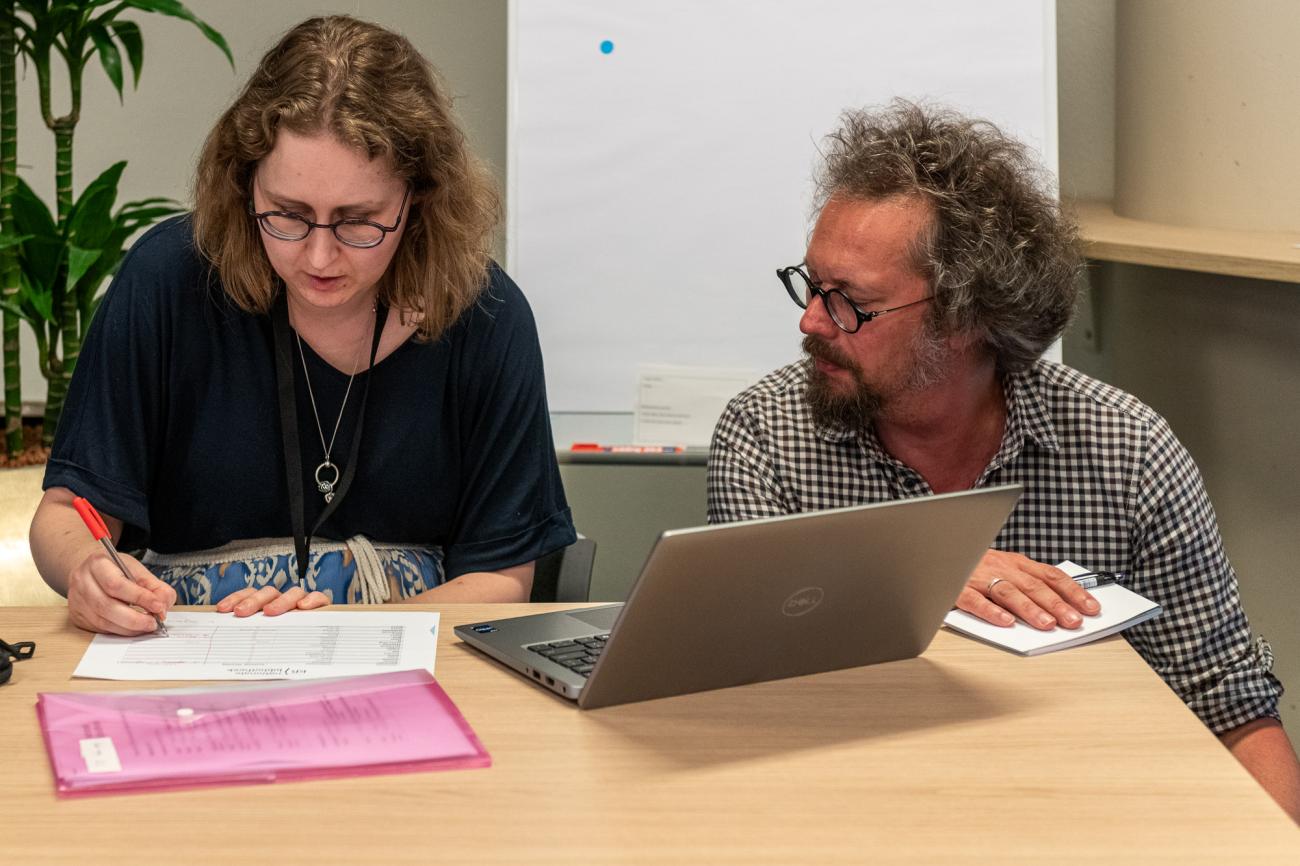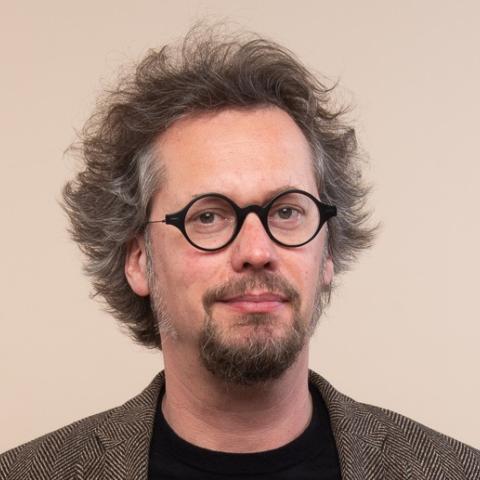Two weeks ago, we hosted the second edition of the KB Summer School on Digital Collections, and the first reflections from participants are beginning to arrive. Encouragingly, their feedback aligns with our own impressions: it was an intense but rewarding week. Over the course of five days, we introduced twenty Research Master's and PhD students to the KB’s digital collections. Presentations were given by our digital curators, as well as by our copyright lawyer, data scientist, file format specialists, and others.
The Rationale
The idea of a summer school on digital collections had been around for some years. We had a lab, a digital scholarship team, a Researcher-in-Residence (RiR) program, and occasional workshops. But why not expand our outreach efforts with a proper summer school? The workshops were one-offs, and while the RiR program is most certainly worthwhile, it's an opportunity that only a few researchers can benefit from each year. A summer school allows us to significantly increase our reach while engaging with the academic community. Beyond that, it's simply a fun way for the entire team to collaborate.
Source Criticism
We also knew what the main focus should be: digital source criticism. We are librarians. Talking about our collections is when our expertise comes through most clearly. And even though we now have a fairly good grasp of digital research methods, the emphasis had to be on knowledge about digital objects, about born-digital collection development, about digitisation choices, about possible biases in digital collections, and about collections as data at the KB. Ideally, we would lay everything bare: from the known knowns to the unknown unknowns, and everything in between. After all (and as far as we know), there were already summer schools on Digital Humanities, but not specifically on digital cultural heritage collections.
The 2024 Program
The first summer school took place at the end of June 2024. The program had a simple basic structure: theory in the morning, practice in the afternoon. In summary:
- Day 1, Collection Day: an introduction to the various born-digital and digitised collections of the KB, as well as a look at which collections have found a second home on Wiki Commons, a demonstration of digitising a medieval manuscript, and a hands-on intro to Delpher, our main platform for digitised historical publications.
- Day 2, Object Day: experts analysed formats like TEI, EPUB, PDF, WARC, ALTO, etc., followed by a workshop using a Jupyter Notebook to inspect, explore and filter a collection of digitised newspaper articles.
- Day 3, Criticism Day: in-depth sessions on copyright, bias and canonisation, OCR and HTR. The day concluded with two guest lectures by former Researchers-in-Residence, one on research based on digitised newspapers (Kaspar Beelen and the environmental scan), and one on research using the web collection (Jesper Verhoef on LGBTQ internet history). Both researchers make digital source criticism a central theme in their research. We wrapped up the day with a group dinner.
- Day 4, Closing Mini-Symposium: with lectures by Thomas Smits and Marieke van Erp, a panel discussion, and, most importantly, the presentation of the group assignments developed during the week. The assignment: prepare a proposal for a comparative study using one or more of the KB’s digital collections.
The 2025 Program
It worked. But at times, it was too intense. A full morning spent analysing digital file formats isn’t everyone’s favourite pastime. We also felt the group only started to open up later in the week. This year, we tackled that early: on Day 1, we took time to get to know each other better through a book dice game inspired by Europeana’s dice game, but with questions about favourite or loathed reads. The group dinner was moved earlier in the week, and we extended the program with a fifth day.
The content didn’t change drastically, but the structure did. Key change: day 2 was split into two days, one fully focussing on digitised collections, from objects to collections, to search strategies and a notebook, ending with Kaspar’s guest lecture; and the other on born-digital collections, with Jesper’s lecture and an afternoon discussion with fifteen established researchers about creating a national media corpus.
It worked. But it might have been just a little bit long. Plus, next time, we should reserve time each morning to reflect on the previous day’s sessions. We’re managing to transfer the knowledge, but the critical reflection still needs more room to emerge collectively.
So yes, the program could definitely use a few more tweaks, but we're really looking forward to bringing those improvements to life in the next edition!
Disclaimer: ChatGPT 4o helped with the translation of this blog post.

